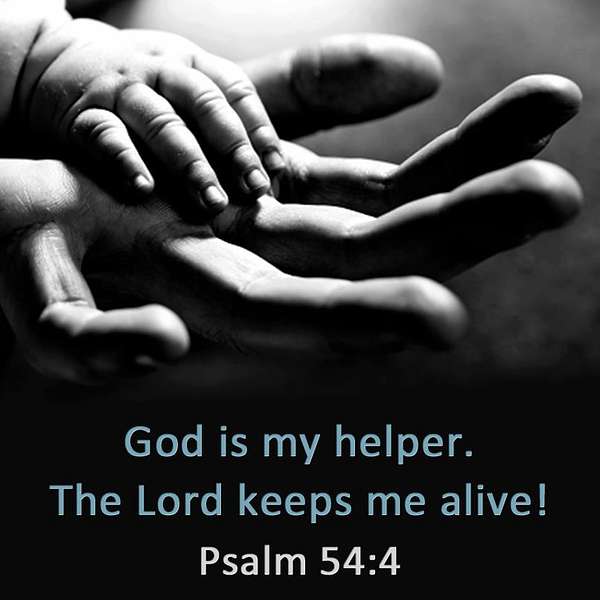
Morning Mercies by Michael Mullen
Morning Mercies by Michael Mullen
Daily Psalms- Psalm 54
Use Left/Right to seek, Home/End to jump to start or end. Hold shift to jump forward or backward.
David begins by praying for this situation. He says “save me by your name.” This is a Hebraism, an expression that we may not understand, but is key to David. He is praying not according to any merit within himself, but rather according to the character and will of God. He prays further that God would “vindicate him by (his) might.” This is a recognition that only in God’s power can anything be done to change the situation, that David himself is not able to do anything. When a person gets to this place of powerlessness in a situation, one can only surrender the future and what happens next, to God.
The Daily Psalms are given with the intention to encourage Christians to read and meditate on these scriptures in order to grow in their faith and relationship with God. They are released every Tuesday and Thursday for the following week on all major Podcast platforms. May the Lord bless you as you ponder His Word.
Presented by Michael Mullen
This psalm, like its sister, Psalm 52, arises out of David’s conflict with Doeg the Edomite. To be betrayed by this man was hardly a surprise in circumspect, but now David is being rejected by members of his own tribe and family. Maybe some of us can imagine how that feels. In this heart breaking situation David turns to God.
This psalm is formed in three parts: David’s prayer, David’s helper’ and David’s Thanksgiving.
David begins by praying for this situation. He says “save me by your name.” This is a Hebraism, an expression that we may not understand, but is key to David. He is praying not according to any merit within himself, but rather according to the character and will of God. He prays further that God would “vindicate him by (his) might.” This is a recognition that only in God’s power can anything be done to change the situation, that David himself is not able to do anything. When a person gets to this place of powerlessness in a situation, one can only surrender the future and what happens next, to God.
After praying David points to the one he is praying too. He wants us to see the hope he has, for the one who is called upon gets all the credit for his life, for his flourishing. He says that it is God’s character to shield him, and to return the evil back upon those who wanted David’s life. In the end, God will end all wickedness, and that is what we pray for.
Finally, to his helper, David offers up his thanksgiving. He gives to God as an expression of His gratitude, a sacrificial offering. This was something that was not required, but was given out of his thankfulness for what God had done or would do. In the Law, the free will offering was to be of a male bull, sheep, or goat with no physical deformities or blemishes, and it was not to have been purchased from a foreigner (Leviticus 22:17–25). It would be sacrificed in a place of God’s choosing. Today, a freewill offering can be anything beyond a tithe or regular offering, given in gratitude or in response to a felt need. This what David out of his gratitude. He knew that the had been delivered from all his trouble, and those who once had been enemies were now removed. How that was is not known, but neither is it really important. They had ceased to be an issue in his life.
When we are faced with opposition to our doing right, or to our relationship we have with God as LORD, we ought to use David’s pattern and apply it to our situation. First we ought to pray according to His name, that is reflected in His character and His will. We ought to reflect on the one we are praying to. He is all-powerful, He is all good, and He is all knowing. So He is capable off meeting our need in view of our enemies. Finally we ought to strive to keep our heart in a grateful posture, worshipping Him and giving to Him, for He has been gracious to us.